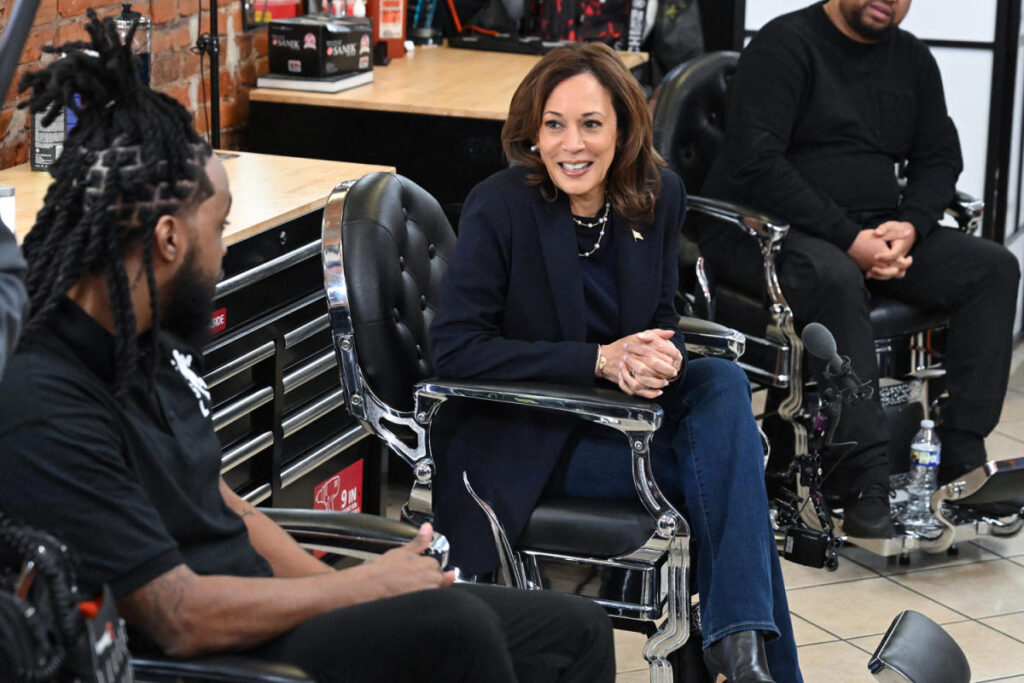Vice President Kamala Harris recently campaigned in Philadelphia, emphasizing the crucial choice voters face in the upcoming presidential election. During her visit, she urged constituents to envision the future of the Oval Office, presenting a stark contrast between her leadership and that of her opponent, Donald Trump. Harris articulated that the election is fundamentally about two different visions for America and presidential responsibilities. On one hand, she framed Trump as a leader who embodies grievance and a need for revenge, stating that if he wins, voters would be entrusting power to someone who holds an “enemies list.” Conversely, Harris projected herself as a president focused on tangible goals and representing progressive values that would benefit the American people.
Harris’s campaign narrative outlined a clear distinction between her approach to governance and that of Trump. She described him as being “full of dark language” and enacting a style of leadership characterized by vindictiveness. In stark contrast, Harris presented herself as dedicated to substantive issues and, crucially, to uplifting marginalized communities. By highlighting this binary choice, she aimed to rally voters around a vision of inclusivity and empowerment, encouraging them to consider the implications of their vote on the future of American democracy.
Throughout her day in Philadelphia, Harris actively engaged with local constituents, particularly focusing on young Black men in the community. This demographic is vital for her campaign as it represents a significant voting bloc that Democrats aim to mobilize for the election. Her visit to a barber shop in West Philadelphia served as an important venue for discussing relatable educational issues, where she underscored the critical role that Black teachers can play in positively impacting students’ academic trajectories. By sharing statistics that demonstrate the benefits of having Black teachers, she conveyed her commitment to educational equity and the empowerment of Black students.
The significance of Pennsylvania cannot be overstated in the context of the election. It represents a critical battleground state with 19 electoral votes, making it essential for any Democratic candidate hoping to reach the necessary 270 electoral votes. Harris’s 14th visit to the state since launching her campaign illustrates how pivotal she considers Pennsylvania to be in her electoral strategy. By investing significant time and resources in Philadelphia, she aimed to solidify support among diverse communities and display her dedication to addressing their specific needs and concerns.
Harris’s engagement in Pennsylvania is part of a broader get-out-the-vote campaign, which reflects the urgency and importance of this election to the Democratic Party. With the election drawing closer, mobilizing and energizing the voter base has become a top priority for Harris and her campaign team. The importance of building a coalition of voters, particularly in Democratic strongholds like Philadelphia, cannot be underestimated, as these efforts could ultimately determine the success of her campaign.
In conclusion, Harris’s campaign efforts in Philadelphia symbolize a larger narrative about the future direction of the nation. She presents herself as a candidate committed to hope, progress, and empowerment, contrasting sharply with the resentment and revenge she attributes to Trump. Through community engagement and targeted messages, Harris aims to unify voters towards a common goal: building a more inclusive and equitable society. With the weight of Pennsylvania’s electoral significance resting on the upcoming vote, Harris’s proactive approach and focus on vital issues represent her determination to chart a different course for America’s future.

